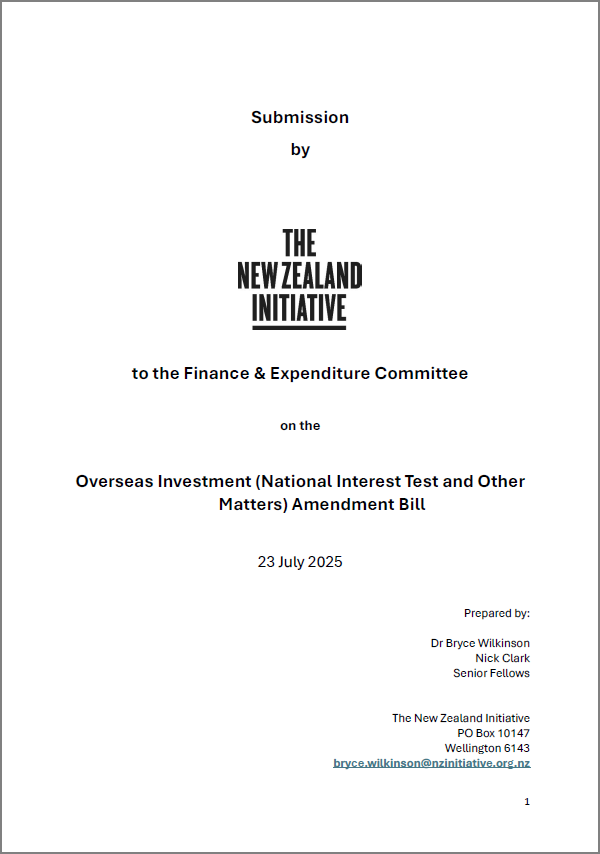1. INTRODUCTION AND SUMMARY CONCLUSION
1.1 This submission on the Overseas Investment (National Interest Test and Other Matters) Amendment Bill 2025 is made by The New Zealand Initiative (the Initiative), a Wellington-based think tank supported primarily by major New Zealand businesses.
1.2 The Initiative’s members span the breadth of the New Zealand economy. In combination, our members employ more than 150,000 people.
1.3 The Initiative undertakes research that contributes to the development of sound public policies in New Zealand. We advocate for the creation of a competitive, open, and dynamic economy and a free, prosperous, fair, and cohesive society.
1.4 Overseas investment has the potential to add greatly to domestic prosperity in small economies. Done well, it better integrates the local economy with international capital, overseas markets, proprietary technologies, and managerial expertise. It heightens international career opportunities for local employees and enhances domestic competition for the benefit of consumers. It can also lift local productivity and wage rates by wrapping more capital around each worker.
1.5 The Initiative supports the Bill’s intentions to make New Zealand’s overseas investment regime less of a barrier to reputable overseas investors. We particularly applaud the streamlined approach for applications subject to the national interest test, with its presumption of approval within 15 working days unless concerns are triggered. Also to be commended are the provisions to ease regulatory burdens for repeat investors and for those investors who already control 75% of the investment and wish to increase that interest.
1.6 However, it is very disappointing to see that, beyond such gains, the Bill is such a modest reform. The contrast with the wide-ranging reforms proposed in Treasury’s “revised Cabinet paper on reform” of 12 July 2024 is dramatic. We suggest that the Cabinet reassesses New Zealanders’ needs and opts for broader-based reform, particularly in relation to urban land.
1.7 We are also concerned that the measures in the Bill are expressed in such general terms as to allow future governments to turn the Bill into a much more restrictive measure than is now intended. Our detailed recommendations follow below.







